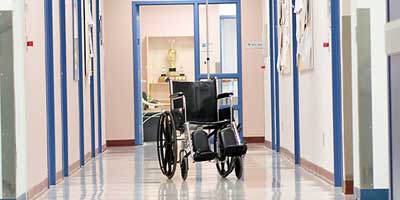
 CHARLESTON–Bishop Robert E. Guglielmone is joining other bishops and religious leaders to urge lawmakers and Catholic voters to support an expansion of Medicaid that will help more of the nation’s poorest receive health care.
CHARLESTON–Bishop Robert E. Guglielmone is joining other bishops and religious leaders to urge lawmakers and Catholic voters to support an expansion of Medicaid that will help more of the nation’s poorest receive health care.
In a recent letter, Bishop Guglielmone supported a proposed expansion of Medicaid under the Affordable Care Act that will extend coverage to about 330,000 uninsured citizens in South Carolina.
“Providing access to health care is consonant with Catholic social teaching,” Bishop Guglielmone wrote. “Indeed it is more than consonant — it is called for by Catholic social teaching.”
The expansion faces a rocky road. At press time, it had already been voted down by the state House of Representatives and was being debated in Senate subcommittees. Gov. Nikki Haley also opposes it.
According to an article in The State newspaper, supporters say increased access to Medicaid would not only help the poor with access to health care, but add billions of dollars and thousands of jobs to the state economy.
Opponents, meanwhile, estimate expansion would cost the state $2 billion by 2020 (see related story on page 12).
States that accept new Medicaid coverage would be required to pay 10 percent of the total costs after three years of being completely funded by the federal government. Opponents say that cost would be too much for South Carolina to handle.
Bishop Guglielmone acknowledges the Affordable Care Act has many problems, including concerns about preserving religious liberty. He said, however, the goal of expanding access to health care is a good one, and urges a middle road: expanding access to Medicaid while also finding a way to make the increased costs affordable.
“Bearing a cost for the sake of something greater is the heart of our faith; it brought us salvation,” Bishop Guglielmone wrote. “At the same time, we can and must make this expansion and our whole health care system more effective and economically viable.”
Catholics in the state are also working with the South Carolina Christian Action Council to gain support for Medicaid expansion. In an open letter, Carl Evans, council president, said access to health care speaks to core Christian values.
“Health care is a basic human right … based on the basic Christian conviction that every human being is a child of God and deserves to have access to the goods and services that meet basic human needs, including health care,” Evans wrote.
“The discussion over this issue is primarily an economic one, but there’s a moral argument to be made as well,” said Father Sandy McDonald, pastor of St. John Neumann Church in Columbia and a member of the Christian council’s board of directors. “Jesus Christ engaged in a healing ministry that suggests we also should be concerned about the health and well being of others.”
Despite the legislative opposition, the council will continue to highlight the issue and attempt to change lawmakers’ minds at a special event for clergy and congregational leaders scheduled for April 23 in Columbia, including speeches and a press conference at the Statehouse.
Meanwhile, Bishop Guglielmone urged the faithful to form their own opinions on the issue and contact their legislators.
He stressed how important it is to seriously consider Church teaching.
“I ask that you start that evaluation with a presumption in favor of what the Church says is a good to be pursued in society, namely, the flourishing of all people through access to health care,” he wrote. “Hold as well our faith conviction that shared sacrifice for a greater good and concern for the poor make us more like Christ.”
